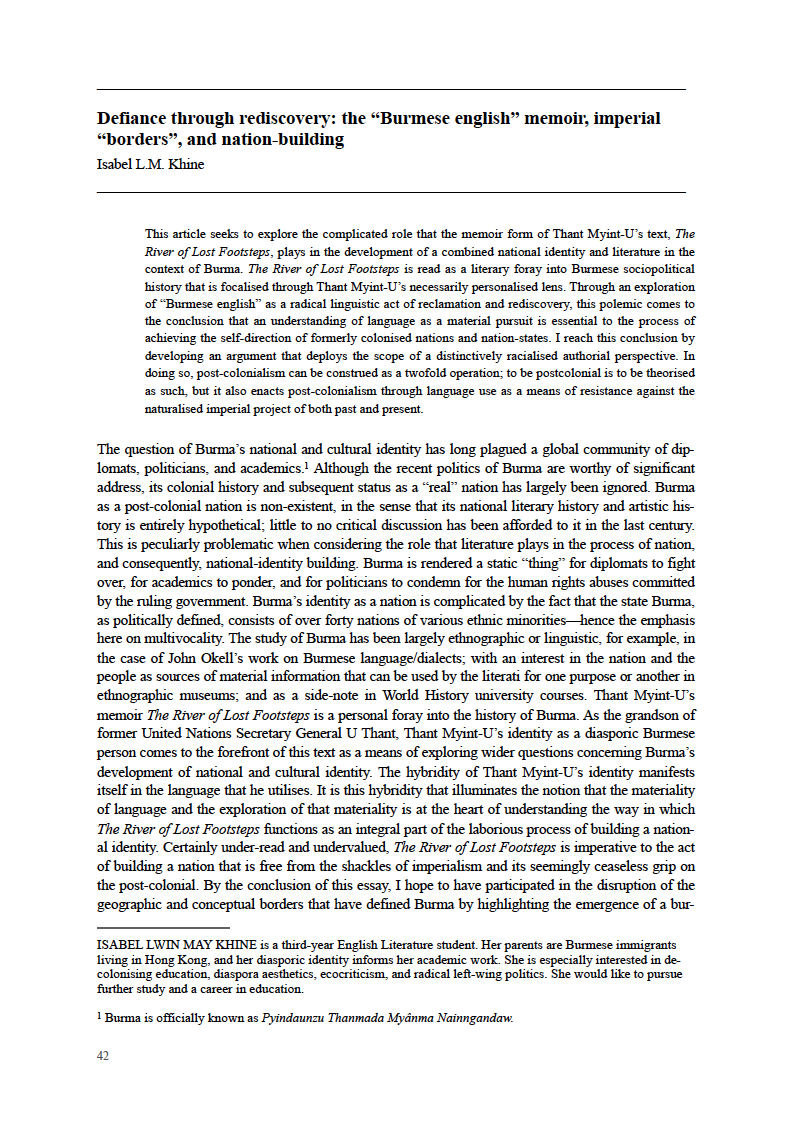Defiance through rediscovery
the “Burmese english” memoir, imperial “borders”, and nation-building
DOI:
https://doi.org/10.36399/GroundingsUG.11.175Keywords:
Burmese English, Memoir, Nation-building, National Identity, Thant Myint-U, The River of Lost FootstepsAbstract
This article seeks to explore the complicated role that the memoir form of Thant Myint-U’s text, The River of Lost Footsteps, plays in the development of a combined national identity and literature in the context of Burma. The River of Lost Footsteps is read as a literary foray into Burmese sociopolitical history that is focalised through Thant Myint-U’s necessarily personalised lens. Through an exploration of “Burmese english” as a radical linguistic act of reclamation and rediscovery, this polemic comes to the conclusion that an understanding of language as a material pursuit is essential to the process of achieving the self-direction of formerly colonised nations and nation-states. I reach this conclusion by developing an argument that deploys the scope of a distinctively racialised authorial perspective. In doing so, post-colonialism can be construed as a twofold operation; to be postcolonial is to be theorised as such, but it also enacts post-colonialism through language use as a means of resistance against the naturalised imperial project of both past and present.

Downloads
Published
Issue
Section
License
Copyright (c) 2018 Isabel L. M. Khine

This work is licensed under a Creative Commons Attribution 4.0 International License.
The CC BY 4.0 license is a Creative Commons license. This is a non-copyleft free license that is good for art and entertainment works, and educational works. It is compatible with all versions of the GNU GPL; however, like all CC licenses, it should not be used on software. People are free to: Share — copy and redistribute the material in any medium or format; Adapt — remix, transform, and build upon the material for any purpose, even commercially. The licensor cannot revoke these freedoms as long as you follow the license terms. But they must conform to the following terms: Attribution — You must give appropriate credit, provide a link to the license, and indicate if changes were made. You may do so in any reasonable manner, but not in any way that suggests the licensor endorses you or your use. No additional restrictions — You may not apply legal terms or technological measures that legally restrict others from doing anything the license permits.
Please check individual article PDF copies to see if any additional restrictions apply.







